Film Review: Minding the Gap (2018)


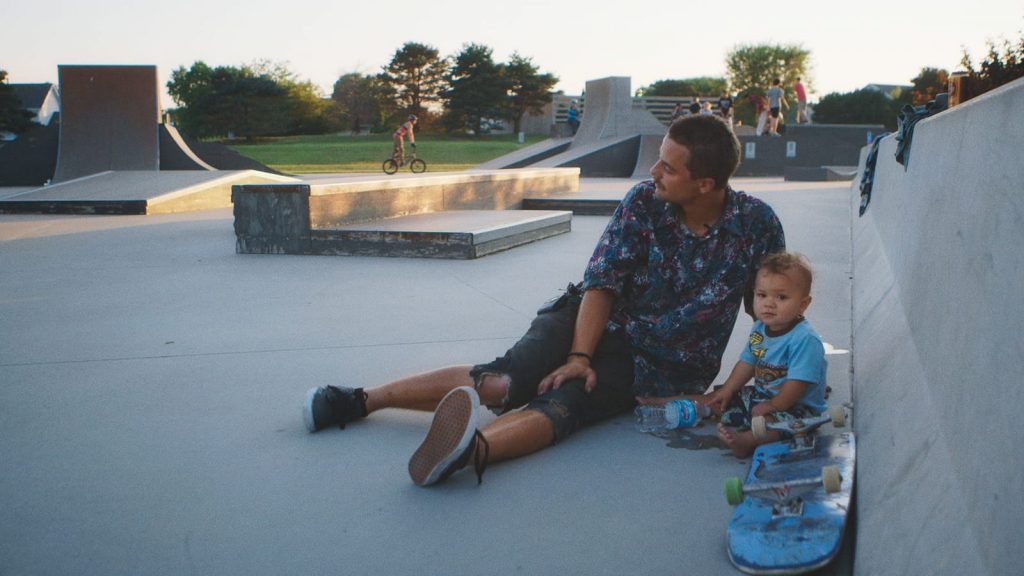
Anyone who loves skateboarding knows that it’s many things. It’s a catharsis, a coping mechanism, an inspiration, and a bad influence all at once. It encourages risk-taking and poor decision making but builds confidence and courage while doing so. Its diversity fosters strong bonds across race and age gaps but does very little to combat sexism, misogyny, or homophobia. It’s an art form performed by individuals while living and breathing in tight-knit communities. It’s a contradiction and that’s how it will remain, but it’s through these contradictions that Bing, Kiere, and Zack’s wonderful stories emerge. Without the inclusion of skateboarding and its influence, Minding the Gap would lack context and heart. It would have no backbone.
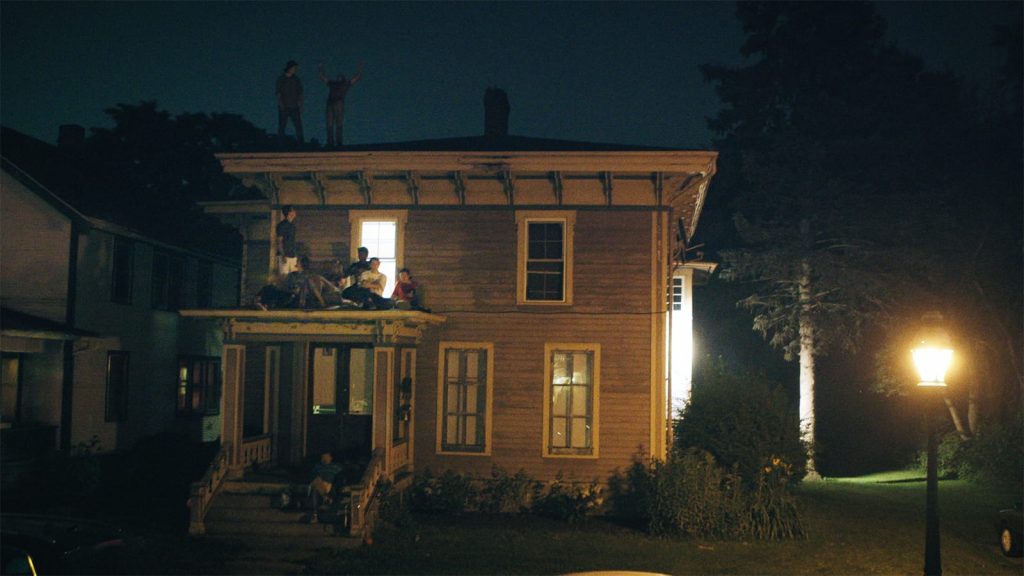
I could tell from the start that Minding the Gap was going to resonate with me. I grew up with skateboarding and credit it as one of the most influential aspects of my life, but that’s not what kept my attention. It may be what got my attention, but it’s not what held it. What director and star Bing Liu uncovers over the course of the film is a conversation about masculinity, poverty, racism, and the cycles of domestic violence – and does so with a deft hand and an enormous sense of style and sympathy. For a first-time filmmaker, Liu has tapped into something that’s incredibly powerful and relevant – and does so better than most veteran documentarians.
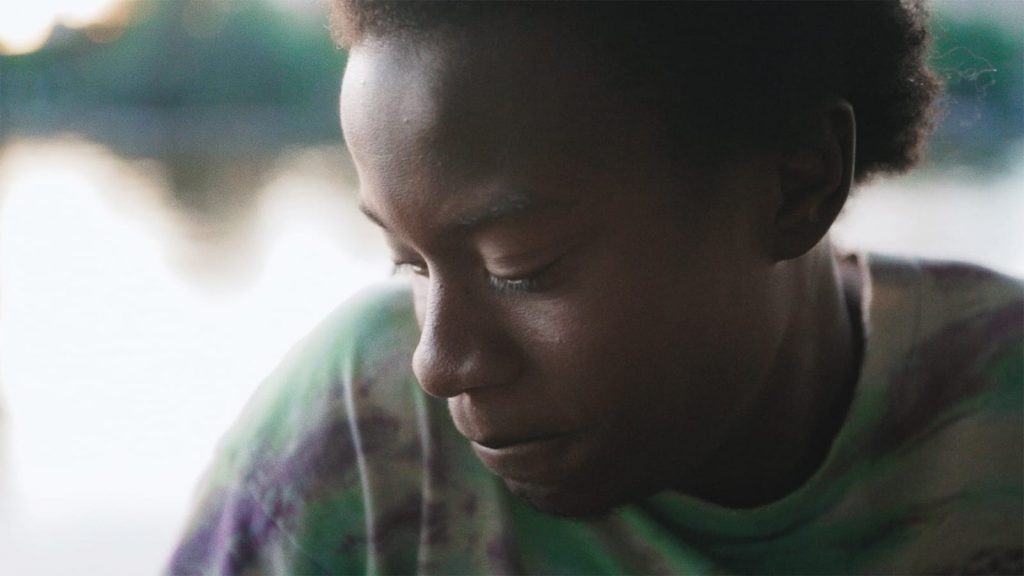
Bing Liu has been filming his friends and their skating exploits for years. That in itself isn’t remarkable – in fact, it’s quite common in the skateboarding world. What’s not so common is for the filmer to begin seeing something in the footage beyond the antics and bails. Bing saw a story beginning to take shape, and as the subject’s skating abilities grew, so did his as a filmmaker and interviewer. His ability to capture both the independence and catharsis of skateboarding as well as the deep-seated toxicity that comes with having mostly negative male role models is a sight to be seen. The beautiful and the monstrous are laid bare and it’s clear that these kids – and by extension, countless others – have been greatly affected by both.
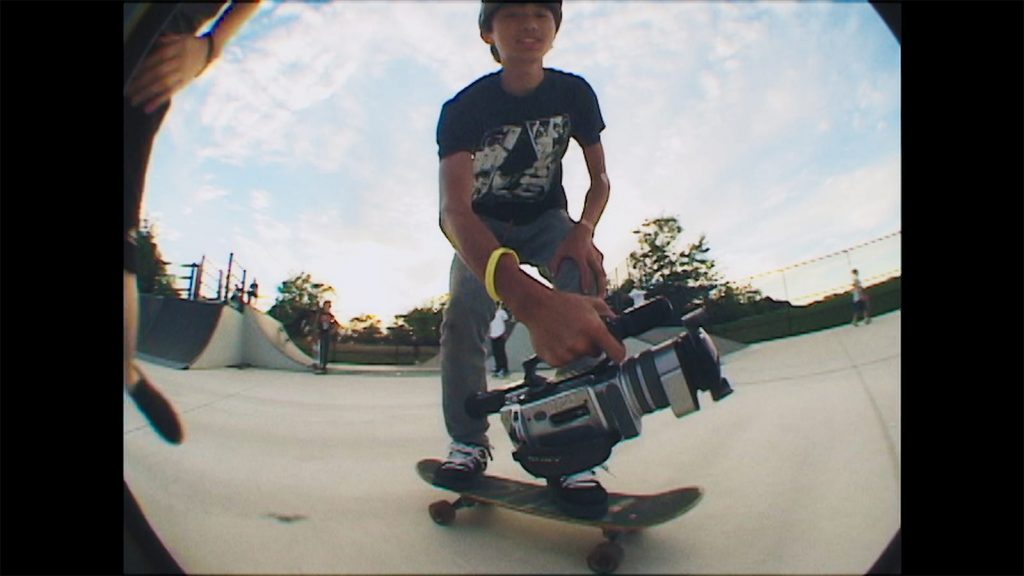
Minding the Gap starts as the story of three friends – Bing, Kiere, and Zack – but becomes much more. Slowly, we realize that it’s about the effects of domestic violence (Bing and Kiere being victims, and Zack being a perpetrator). As the film begins to take shape for us, it goes in new and unexpected directions. Other characters emerge, such as Nina, Zack’s girlfriend and mother to his young son, as well as Bing’s own mother. The director treads lightly as he tries to make sense of why his mother would allow his stepfather to beat him up, and why Zack would slap Nina. He delves into the complicated relationship between Kiere and his father, and how a man like that could raise such a caring and insightful son.
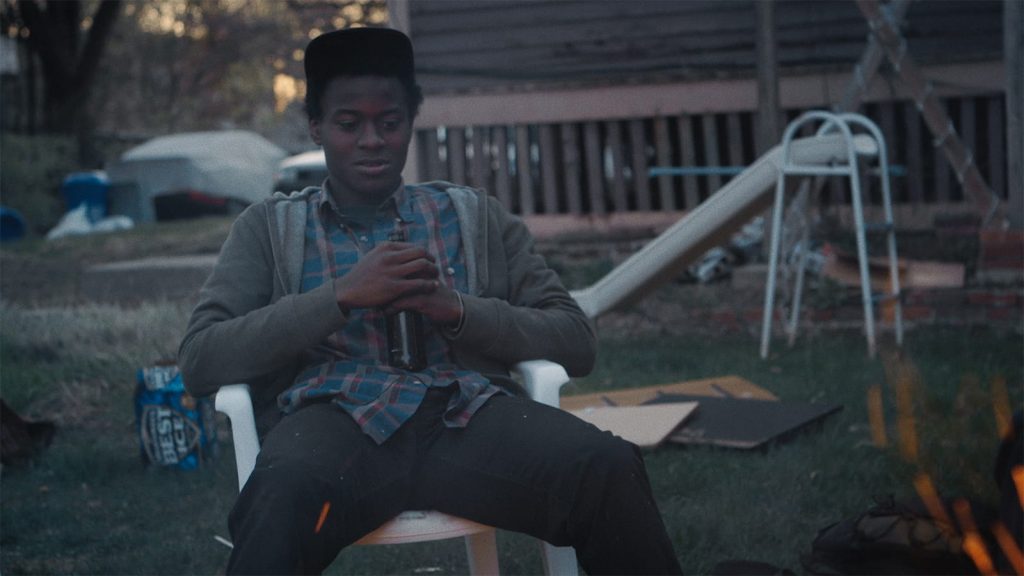
This isn’t exactly a happy film, but there is a release at the end that leaves one with a feeling of optimism. It’s very easy to want everyone to succeed in life and find the happiness they’ve been missing out on. Minding the Gap can be very difficult to watch at times, but I hope that some struggling kids out there find it helpful and gain a level of comfort from it. This is a beautiful and honest film that takes a hard look at growing up and the challenges that come with it. Pay attention to who you identify most with and why. I saw myself at various stages of my life in aspects of almost every character, which can be a hard pill to swallow. But, if we’re to learn anything from Minding the Gap, many will have to take their medicine.
United States • 2018 • 93 minutes • Color • 1.78:1 • English • Spine #1061
Criterion Special Features Include
- New high-definition digital master, approved by director Bing Liu, with 5.1 surround DTS-HD Master Audio soundtrack on the Blu-ray
- Two new audio commentaries, one featuring Liu and the other featuring Liu and documentary subjects Keire Johnson and Zack Mulligan
- New follow-up conversation between Liu and documentary subject Nina Bowgren
- New programs featuring interviews with professional skateboarder Tony Hawk and with Liu, executive producer Gordon Quinn, and producer Diane Quon
- Four outtake scenes, with introductions by Liu
- Nước (2010), a short film by Liu about two Vietnamese immigrants growing up American
- Trailer
- English subtitles for the deaf and hard of hearing
- PLUS: An essay by critic Jay Caspian Kang
